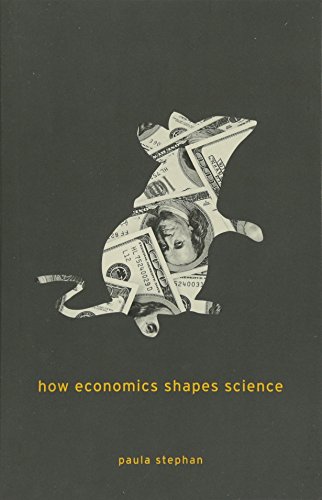economics shapes science von stephan paula (9 Ergebnisse)
Suchfilter
Produktart
- Alle Product Types
- Bücher (9)
- Magazine & Zeitschriften (Keine weiteren Ergebnisse entsprechen dieser Verfeinerung)
- Comics (Keine weiteren Ergebnisse entsprechen dieser Verfeinerung)
- Noten (Keine weiteren Ergebnisse entsprechen dieser Verfeinerung)
- Kunst, Grafik & Poster (Keine weiteren Ergebnisse entsprechen dieser Verfeinerung)
- Fotografien (Keine weiteren Ergebnisse entsprechen dieser Verfeinerung)
- Karten (Keine weiteren Ergebnisse entsprechen dieser Verfeinerung)
- Manuskripte & Papierantiquitäten (Keine weiteren Ergebnisse entsprechen dieser Verfeinerung)
Zustand Mehr dazu
- Neu (7)
- Wie Neu, Sehr Gut oder Gut Bis Sehr Gut (Keine weiteren Ergebnisse entsprechen dieser Verfeinerung)
- Gut oder Befriedigend (2)
- Ausreichend oder Schlecht (Keine weiteren Ergebnisse entsprechen dieser Verfeinerung)
- Wie beschrieben (Keine weiteren Ergebnisse entsprechen dieser Verfeinerung)
Einband
- alle Einbände
- Hardcover (Keine weiteren Ergebnisse entsprechen dieser Verfeinerung)
- Softcover (9)
Weitere Eigenschaften
- Erstausgabe (Keine weiteren Ergebnisse entsprechen dieser Verfeinerung)
- Signiert (Keine weiteren Ergebnisse entsprechen dieser Verfeinerung)
- Schutzumschlag (Keine weiteren Ergebnisse entsprechen dieser Verfeinerung)
- Angebotsfoto (3)
Sprache (1)
Preis
- Beliebiger Preis
- Weniger als EUR 20 (Keine weiteren Ergebnisse entsprechen dieser Verfeinerung)
- EUR 20 bis EUR 45
- Mehr als EUR 45
Gratisversand
- Kostenloser Versand nach USA (Keine weiteren Ergebnisse entsprechen dieser Verfeinerung)
Land des Verkäufers
Verkäuferbewertung
-
EUR 23,27
EUR 5,71 für den Versand von Vereinigtes Königreich nach USAAnzahl: 1 verfügbar
In den WarenkorbPAP. Zustand: New. New Book. Shipped from UK. Established seller since 2000.
-
Zustand: New. 2015. Reprint. Paperback. At a time when science is seen as an engine of economic growth, Paula Stephan brings a keen understanding of the cost benefit calculations made by individuals and institutions as they compete for resources and reputation in scientific fields. She highlights especially the growing gap between the biomedical sciences and physics/engineering." Num Pages: 384 pages. BIC Classification: JNF; KCG; PDK. Category: (G) General (US: Trade). Dimension: 147 x 226 x 31. Weight in Grams: 502. . . . . . Books ship from the US and Ireland.
-
EUR 46,46
EUR 14,23 für den Versand von Vereinigtes Königreich nach USAAnzahl: 2 verfügbar
In den WarenkorbPaperback. Zustand: Brand New. reprint edition. 367 pages. 8.50x5.75x0.75 inches. In Stock.
-
EUR 55,28
EUR 6,37 für den Versand von Vereinigtes Königreich nach USAAnzahl: 1 verfügbar
In den WarenkorbPaperback. Zustand: Very Good. The book has been read, but is in excellent condition. Pages are intact and not marred by notes or highlighting. The spine remains undamaged.
-
EUR 22,73
EUR 46,66 für den Versand von Vereinigtes Königreich nach USAAnzahl: 2 verfügbar
In den WarenkorbZustand: NEW.
-
Kartoniert / Broschiert. Zustand: New. At a time when science is seen as an engine of economic growth, Paula Stephan brings a keen understanding of the cost-benefit calculations made by individuals and institutions as they compete for resources and reputation in scientific fields. She highlights.
-
paperback. Zustand: Gut. 367 Seiten; 9780674088160.3 Gewicht in Gramm: 2.
-
How Economics Shapes Science
Verlag: Harvard University Press Sep 2015, 2015
ISBN 10: 0674088166 ISBN 13: 9780674088160
Sprache: Englisch
Anbieter: AHA-BUCH GmbH, Einbeck, Deutschland
Taschenbuch. Zustand: Neu. Neuware - The beauty of science may be pure and eternal, but the practice of science costs money. And scientists, being human, respond to incentives and costs, in money and glory. Choosing a research topic, deciding what papers to write and where to publish them, sticking with a familiar area or going into something new¿the payoff may be tenure or a job at a highly ranked university or a prestigious award or a bump in salary. The risk may be not getting any of that.At a time when science is seen as an engine of economic growth, Paula Stephan brings a keen understanding of the ongoing cost-benefit calculations made by individuals and institutions as they compete for resources and reputation. She shows how universities offload risks by increasing the percentage of non-tenure-track faculty, requiring tenured faculty to pay salaries from outside grants, and staffing labs with foreign workers on temporary visas. With funding tight, investigators pursue safe projects rather than less fundable ones with uncertain but potentially path-breaking outcomes. Career prospects in science are increasingly dismal for the young because of ever-lengthening apprenticeships, scarcity of permanent academic positions, and the difficulty of getting funded.Vivid, thorough, and bold, How Economics Shapes Science highlights the growing gap between the haves and have-nots¿especially the vast imbalance between the biomedical sciences and physics/engineering¿and offers a persuasive vision of a more productive, more creative research system that would lead and benefit the world.
-
Taschenbuch. Zustand: Neu. How Economics Shapes Science | Paula Stephan | Taschenbuch | Einband - flex.(Paperback) | Englisch | 2015 | Harvard University Press | EAN 9780674088160 | Verantwortliche Person für die EU: Libri GmbH, Europaallee 1, 36244 Bad Hersfeld, gpsr[at]libri[dot]de | Anbieter: preigu.






